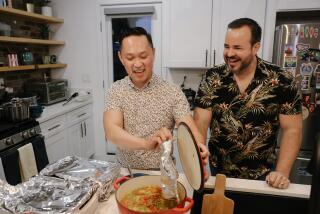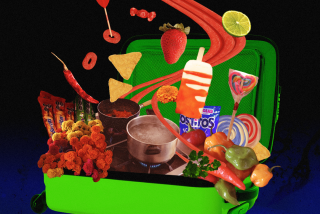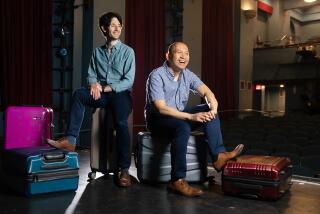A Balikbayan Goes Home
I am in the Philippines, land of my parents, visiting for the first time. My mother is my travel guide, anxious to show me the wonders of the country. I am here to learn about myself.
We are standing at the airport.
B-A-L-I-K-B-A-Y-A-N is stenciled across the box in thick bold letters. I read the word out loud. “Balikbayan” is the name of a box that Filipinos are notorious for sending home to the Philippines, filled with gifts of food, clothing and more. And it’s the same box Filipinos are notorious for standing next to at the airport.
Go to any airport. At the international terminals, look for flights leaving for the Philippines. You’ll see people standing next to a stack of boxes, one for each family member.
As far back as I can remember, my parents have sent a Balikbayan box to the Philippines, usually twice a year--in the fall for Christmas and in the spring. My mother sends the boxes to her family as a way of keeping family together, despite the distance.
“How can you tell if you’re Filipino?” my mother repeats the joke. “You’re always standing beside a stack of Balikbayan boxes at the airport.” We were.
At customs with our luggage and the boxes, I was sweating heavily. The country’s heat had blasted me as soon as we walked off the plane into the terminal. “Is this as hot as it gets?” I asked my mother.
“No,” she said. “The air conditioning is turned on.”
I had never learned Tagalog, the foreign tongue my parents didn’t teach me, so I felt out of place in the Philippines, even though it is the third largest English-speaking nation. I was a stranger. Yet for the first time I could get lost in the mall in a sea of black hair. And because my face for the first time matched everyone else’s, I was sometimes spoken to in Tagalog.
After my aunt and cousin picked us up at the airport, we stopped at a restaurant in Quezon City for a meal of the familiar Filipino cuisine I knew from my mother’s kitchen . Afterward, my mother and aunt got up for the bathroom and my cousin went to pay the check. I was left alone at the table to wait.
When the busboy came by to clear away the dishes, he asked me something in Tagalog. I guessed it was, “Can I clear the table?” I smiled and nodded my head, the international sign for yes.
Then he asked me something else. I nodded blankly with a thin smile. He asked another question. I repeated the gesture. He looked at me as if I were an idiot. Embarrassed, I had to confess “I have absolutely no clue what you’re saying.”
The boy laughed. With a slight accent and exaggerated gesture of shock, he said, “I had no idea you didn’t speak Tagalog!” I explained I was just visiting. “Oh, so you’re a Balikbayan,” he said and laughed again.
Since I didn’t know if I should take that as an insult, I smiled back and he left. When my family returned, I told them the story and they all laughed. I didn’t think it was funny being called a box.
My mother patted me on the back and explained”
“Balikbayan,” she said, “means someone who is returning to the homeland.”
“Someone like me,” I said.
More to Read
Sign up for The Wild
We’ll help you find the best places to hike, bike and run, as well as the perfect silent spots for meditation and yoga.
You may occasionally receive promotional content from the Los Angeles Times.






